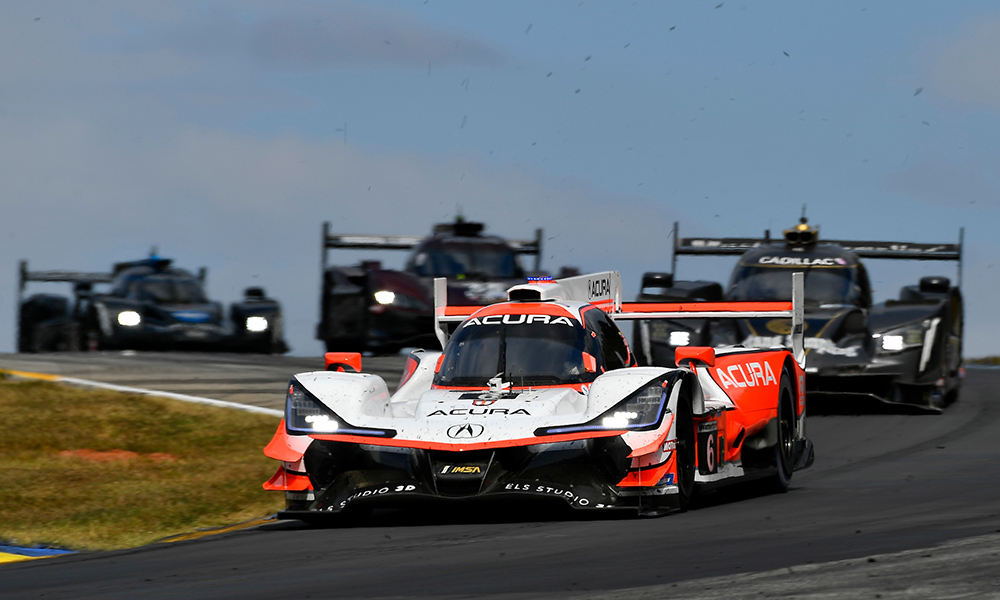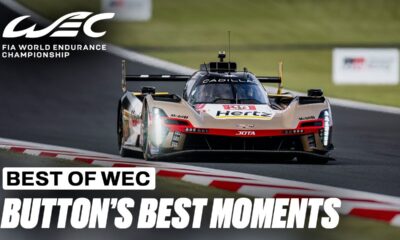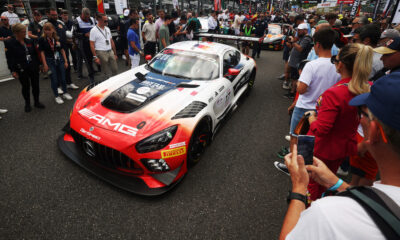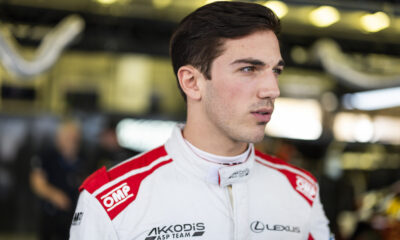
Photo: Scott LePage/IMSA
Toyota is open for DPi integration into the FIA World Endurance Championship’s top class as long as it doesn’t prevent the Japanese manufacturer from showcasing its bespoke hybrid technology.
The development comes in the wake of continued talks between the ACO and IMSA on the possible adoption of IMSA’s so-called DPi 2.0 regulations that would create a global prototype platform by as early as the 2022 season.
While Toyota has continued development of its GR Super Sport-based prototype, which is scheduled to debut in the 2020-21 launch season, Vasselon suggested that he’s open to other types of cars competing in the top class, as long as Toyota can continue to utilize its own hybrid technology.
IMSA’s new-gen DPi ruleset is set to feature a spec hybrid system located on the rear axle of the cars, which are likely to retain the current LMP2 chassis designs.
“Obviously in the future we should look at any opportunity to have more manufacturers, of course,” Vasselon said.
“As long as we keep what brings us to Le Mans, which means some level of technology… We’re not interested in a spec hybrid system.”
The potential eligibility of DPi machinery would add to the diverse mix of cars already confirmed for the yet-to-be-named top class, rumored to be LMPi, which includes Toyota’s prototype-based hypercar, Aston Martin’s road-going Valkyrie as well as grandfathered LMP1 cars for at least the first season.
“We already have equalization between prototype and hypercar,” Vasselon said. “So there’s no limit to the equalization.
“And there will be grandfathered LMP1s by regulation as well, because they have a three-year homologation.
“It will be balance in all directions.”
Vasselon said he expects the first season of the Hypercar formula to be “reasonably good” despite limited OEM interest.
“At the moment we are hoping for four [teams] to be there, Aston and us, also ByKolles and Glickenhaus,” he said. “These are the four that are working to be present.
“Long-term anything can happen, several manufacturers are looking at it and planning to come in Year 2.”
Toyota Hypercar Development on “Very Risky Schedule”
Vasselon said development of its prototype-based hypercar for the 2020-21 season is moving “flat out” and admitted it remains a tight timeframe.
“Everything very critical,” he said. “The cars will hit the ground shortly before homologation and shortly before the first race. It’s all very tight, a very risky schedule.”
Vasselon said he would be in favor of a later start to the season, although it appears the first round at Silverstone will be only one week later than this year.
“Silverstone has moved a bit apparently, it will be a bit later, instead being of end of August, it will be at the beginning of September, so we would gain maybe one week there,” he said.
“It’s difficult to ask for more because at the moment we go for the perfect program and hope everything goes well.
“But for sure it’s risky. The schedule is very tight.”





















